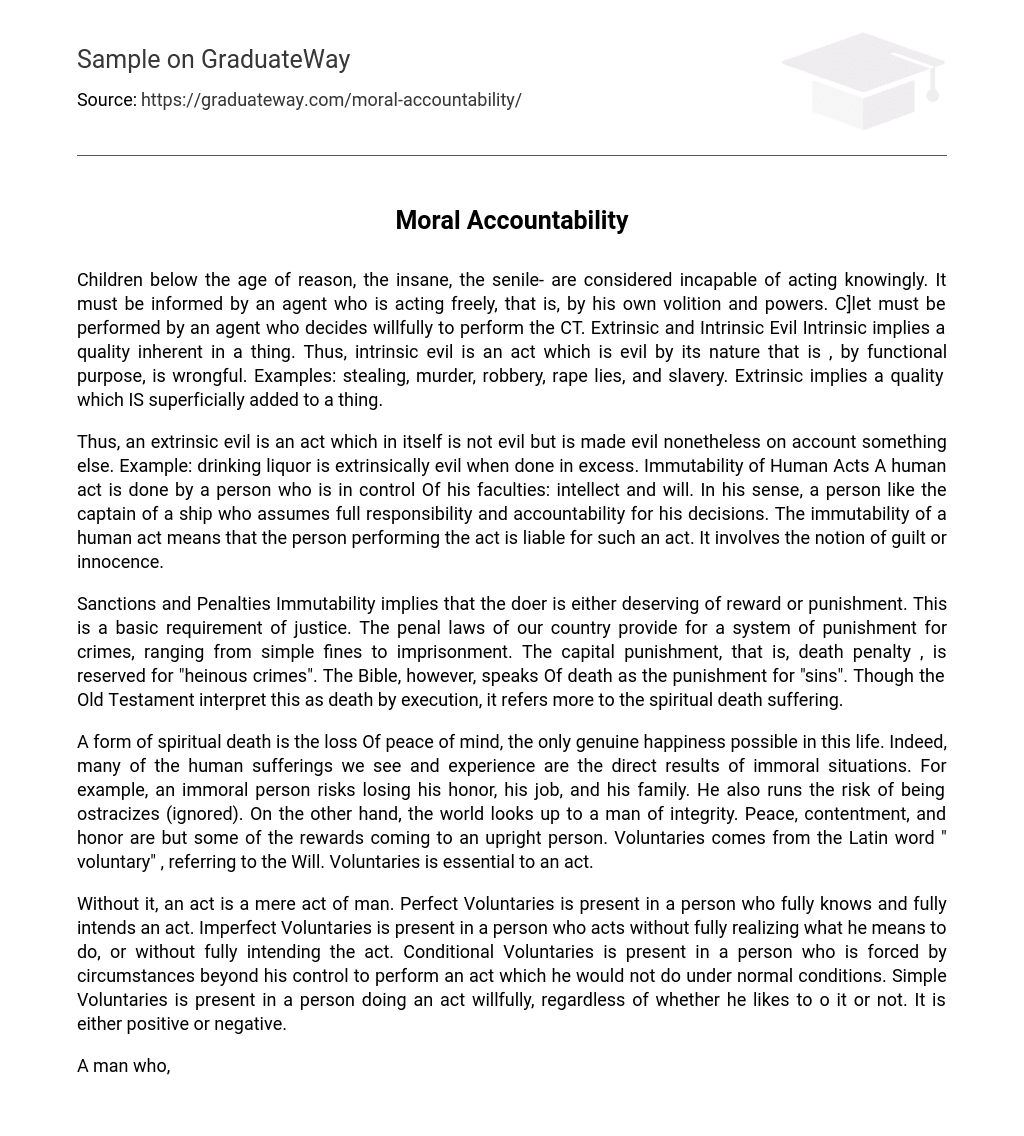Children below the age of reason, the insane, the senile- are considered incapable of acting knowingly. It must be informed by an agent who is acting freely, that is, by his own volition and powers. C]let must be performed by an agent who decides willfully to perform the CT. Extrinsic and Intrinsic Evil Intrinsic implies a quality inherent in a thing. Thus, intrinsic evil is an act which is evil by its nature that is , by functional purpose, is wrongful. Examples: stealing, murder, robbery, rape lies, and slavery. Extrinsic implies a quality which IS superficially added to a thing.
Thus, an extrinsic evil is an act which in itself is not evil but is made evil nonetheless on account something else. Example: drinking liquor is extrinsically evil when done in excess. Immutability of Human Acts A human act is done by a person who is in control Of his faculties: intellect and will. In his sense, a person like the captain of a ship who assumes full responsibility and accountability for his decisions. The immutability of a human act means that the person performing the act is liable for such an act. It involves the notion of guilt or innocence.
Sanctions and Penalties Immutability implies that the doer is either deserving of reward or punishment. This is a basic requirement of justice. The penal laws of our country provide for a system of punishment for crimes, ranging from simple fines to imprisonment. The capital punishment, that is, death penalty , is reserved for “heinous crimes”. The Bible, however, speaks Of death as the punishment for “sins”. Though the Old Testament interpret this as death by execution, it refers more to the spiritual death suffering.
A form of spiritual death is the loss Of peace of mind, the only genuine happiness possible in this life. Indeed, many of the human sufferings we see and experience are the direct results of immoral situations. For example, an immoral person risks losing his honor, his job, and his family. He also runs the risk of being ostracizes (ignored). On the other hand, the world looks up to a man of integrity. Peace, contentment, and honor are but some of the rewards coming to an upright person. Voluntaries comes from the Latin word ” voluntary” , referring to the Will. Voluntaries is essential to an act.
Without it, an act is a mere act of man. Perfect Voluntaries is present in a person who fully knows and fully intends an act. Imperfect Voluntaries is present in a person who acts without fully realizing what he means to do, or without fully intending the act. Conditional Voluntaries is present in a person who is forced by circumstances beyond his control to perform an act which he would not do under normal conditions. Simple Voluntaries is present in a person doing an act willfully, regardless of whether he likes to o it or not. It is either positive or negative.
A man who, wanting to get even , takes a gun and shoots his enemy is said to be acting with perfect voluntaries. CLC A drunken man might act irrationally without fully realizing what he is doing; or a woman , in terror, might jump out of a window without fully intending to kill herself. C] A child who is intimidated by his mother to study the lesson is acting with conditional voluntaries. C] It is positive when the act requires the performance of an activity, such as polishing the floor or paying rent. It is negative when an act requires the omission of activity, such remaining quiet.





